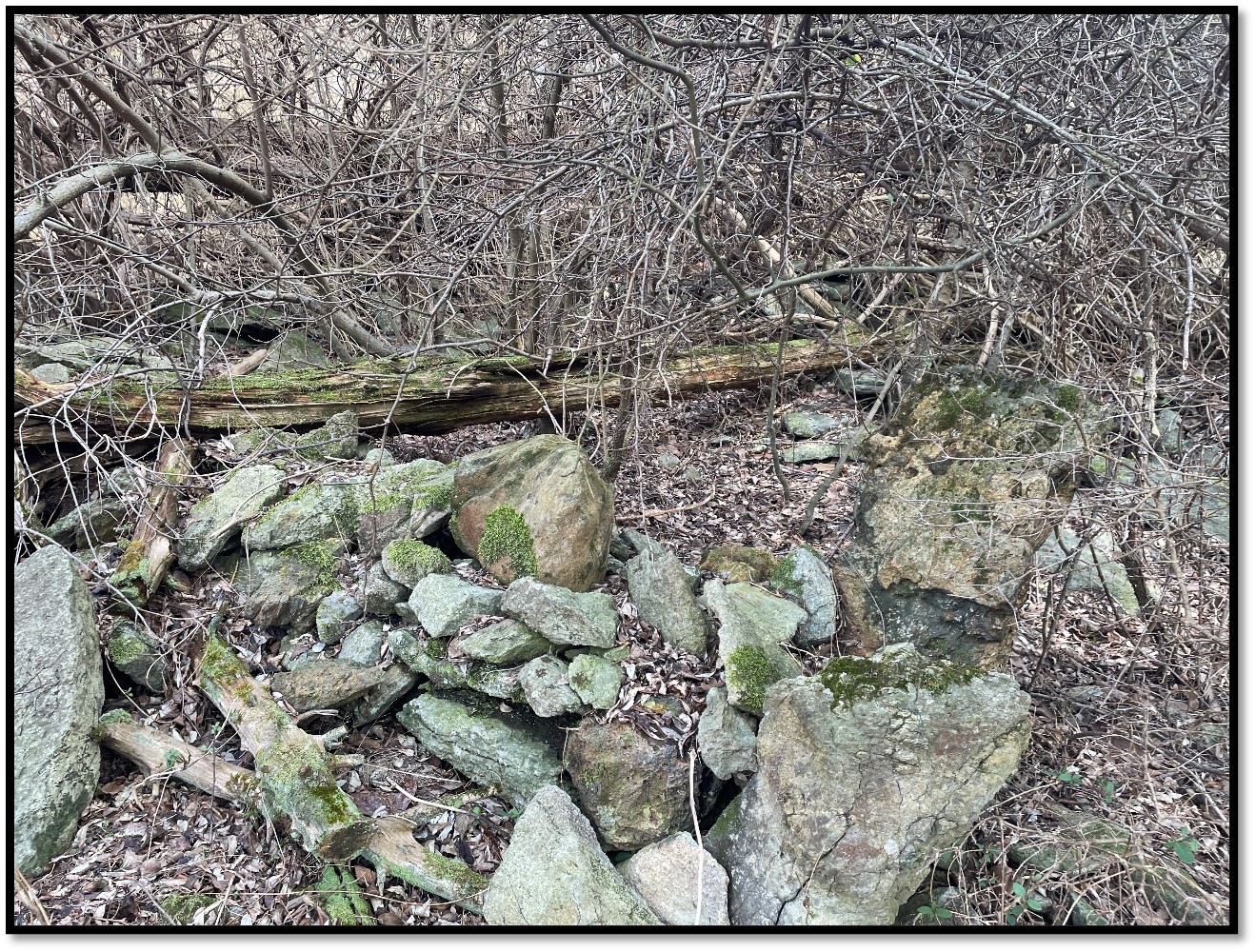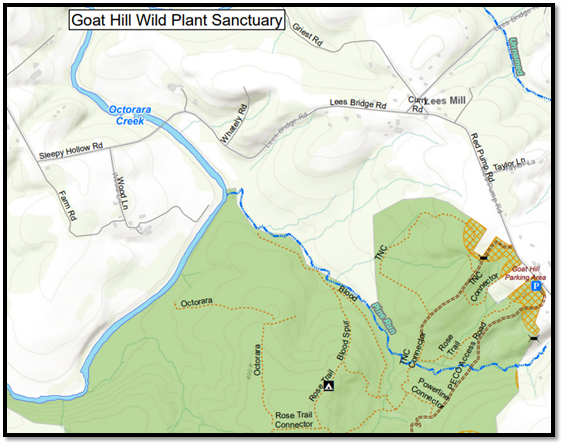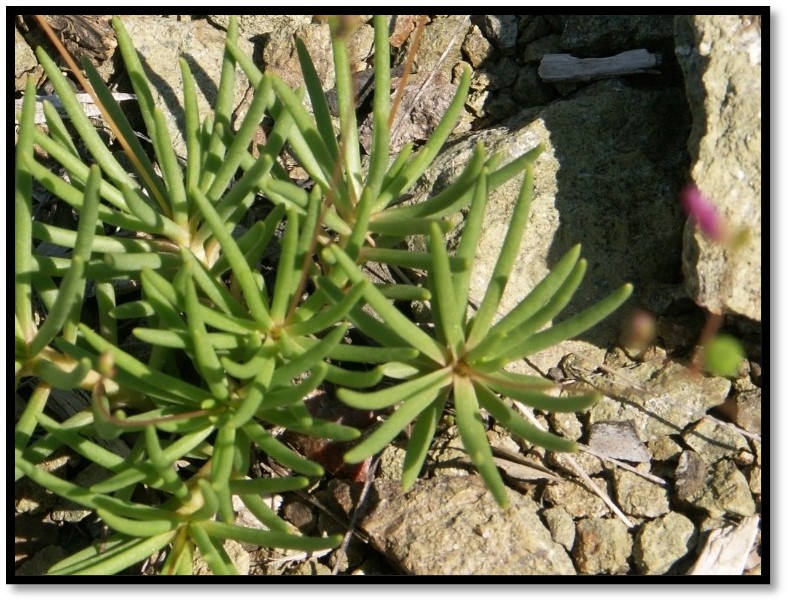The Turner Place | WeConservePA – Technologist
by Stephen Wacker

Remains of the Turner family homestead.
A curious ruin exists of what appears to be two stone foundations and a retaining wall at Goat Hill Wild Plant Sanctuary in William Penn State Forest. We now know who lived there and something about their story.

Map of the present-day Goat Hill Wild Plant Sanctuary.
Sometime before 1850, Archibald Turner acquired about nine acres along Pine Run. He lived there with his wife, three daughters, and a son. Most census records indicate his occupation as laborer, and it is likely he worked in the local mining industry extracting chromite or magnesite from the mines that were literally just at his doorstep. The stone foundations are made from quarried serpentine rather than fieldstone and were probably obtained from the nearby magnesite mine.
Sometime between 1855 and 1884, Archibald and Lucinda added 15 acres to their holdings and became “farmers.” But this was some of the worst land in Chester County for farming-the “barrens.” Livestock grazing was the only viable agriculture on the poor soil and 24 acres would not be enough to support a family. Archibald and Lucinda could not read or write, but they were able to send their children to the local school, where they learned to read. After Archibald died sometime around 1885, Lucinda moved away and their son, John, sold the 15-acre tract in 1906. Lucinda was fortunate to receive a pension of $8 per month because Archibald had served in the Union Army during the Civil War, as a Private in Company B of the 127th U.S. Colored Troops. He was involved in the sieges of Richmond and Petersburg, and present at Appomattox Courthouse. The Turners were one of only a few Black families to own a farm in Chester County. Their original nine acres apparently were abandoned and eventually sold at tax sale in 1974, with no record of sale during the intervening 119 years.

Serpentine soils at Goat Hill support a unique native plant community but make a poor site for crops.
Among several remarkable aspects of the Turner family is the fact that they lived less than 600 yards from the border with Maryland at a time of great insecurity for Black people. During the time when the Turner girls were young, two girls of similar age were kidnapped on separate occasions from farms only a mile away, and one was taken as far as Louisiana before being rescued. An employer of one of the girls was murdered in Maryland trying to obtain her release. The events at Christiana in 1851 (i.e. Christiana Riot), not far away in Lancaster County, certainly would have also hit close to home for the Turners.
Approximately five families once lived on what is now the Goat Hill Tract of William Penn State Forest, but only the Turners, it seems, tried to make a living by farming there. Their story and deep connection to this unique state forest tract should forever stand as a poignant chapter at the intersection of Pennsylvania’s rich cultural and natural histories.
“Forest Fridays” is published weekly by the Pennsylvania Department of Conservation and Natural Resources (DCNR).



